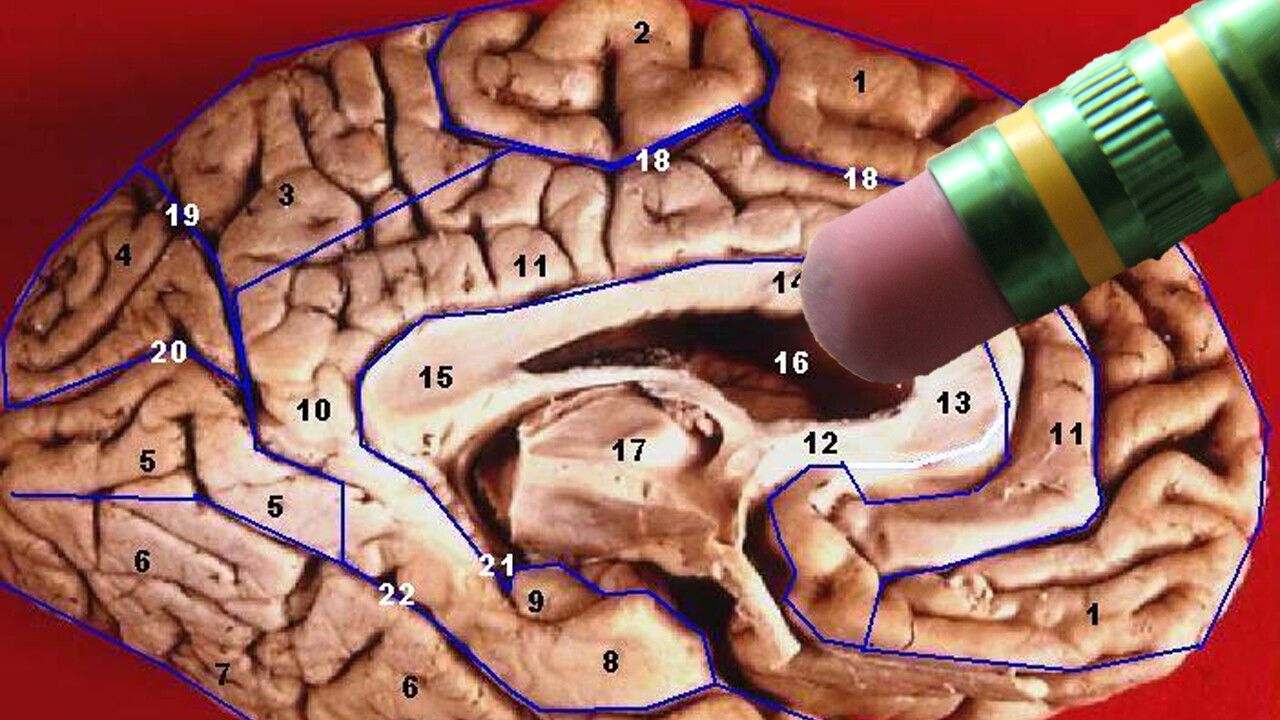
Researchers at Cambridge University have discovered a protein in the brain of mice that may act as a biomarker for malleable memories. In other words, they may be able to determine which memories we can erase and which we are, for whatever reason, stuck with.
Up front: The researchers conditioned laboratory mice by simultaneously shocking them and making a clicking noise. The mice naturally associated the sound with the shock and, thus, developed a fear response. Because the mice remembered being shocked, they associated the noise with discomfort.
The researchers then injected the mice with propranolol, a beta-blocker, and the results were shocking: nothing happened. The mice should have gained amnesia and forgotten the association between the clicking noise and being shocked, but they didn’t.
Background: Previous research on inducing amnesia in laboratory rats has shown that propranolol was effective. This time around, however, the Cambridge researchers discovered the presence of a specific protein in the neurons they expected to be affected.
Per a university press release:
Now scientists at Cambridge University have shown that the presence of a particular protein – the “shank” protein, which acts as a scaffold for the receptors that determine the strength of connections between neurons – determines whether the memories can be modified in animals treated with propranolol. If this protein is degraded, then memories become modifiable. However, if this protein is found to be present, then this shows that the memories were not degradable, so explaining why propranolol does not always produce amnesia.
A bit deeper: The researchers now know why propranolol doesn’t always work. But they don’t know why the shank protein stops it or even why it’s there sometimes and not there other times.
Like all great research, this study answers some questions but asks even more.
The important thing is that, with further research, these findings could have huge implications for humans.
The researchers are quick to point out that this isn’t the stuff of science fiction. It’s unlikely you’ll be able to go full Men In Black and zap someone’s memory in a targeted manner.
The discovery of this biomarker may lead to some incredible findings in our ability to treat conditions such as PTSD or to help people forget subconcious trauma.
Lead researcher Amy Milton, per a university press release, said:
This means that the shank protein can be used a biomarker for a malleable memory. We don’t yet know if it’s directly involved in the memory degradation, or if it’s a by-product of a deeper reaction. What it does do is give us a way in, a key to one of the first doors in understanding the biochemistry of memory.
Quick take: We don’t know much about how organic memory works. Conditions such as Alzheimer’s and dementia remain uncured due to the complexity of the human brain and the challenges involved in interpreting its machinations.
Finding a biomarker that we can associate with memory, even in a mouse’s brain, is a giant step forward in our understanding even the most basic memory functions.
This could lead to chemical treatments to effectively cure emotional trauma.
As far as we can tell, however, the team hasn’t released a research paper. The research is currently tagged as “non peer reviewed” on EurekAlert. That doesn’t mean it isn’t a strong study (this is Cambridge we’re talking about). But it does mean we should take it all with a grain of salt until peer-review replicates the findings.
Get the TNW newsletter
Get the most important tech news in your inbox each week.




